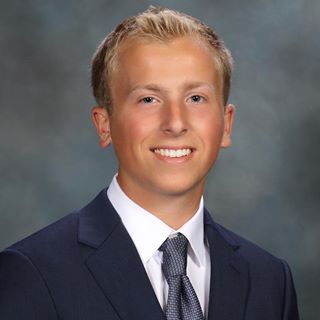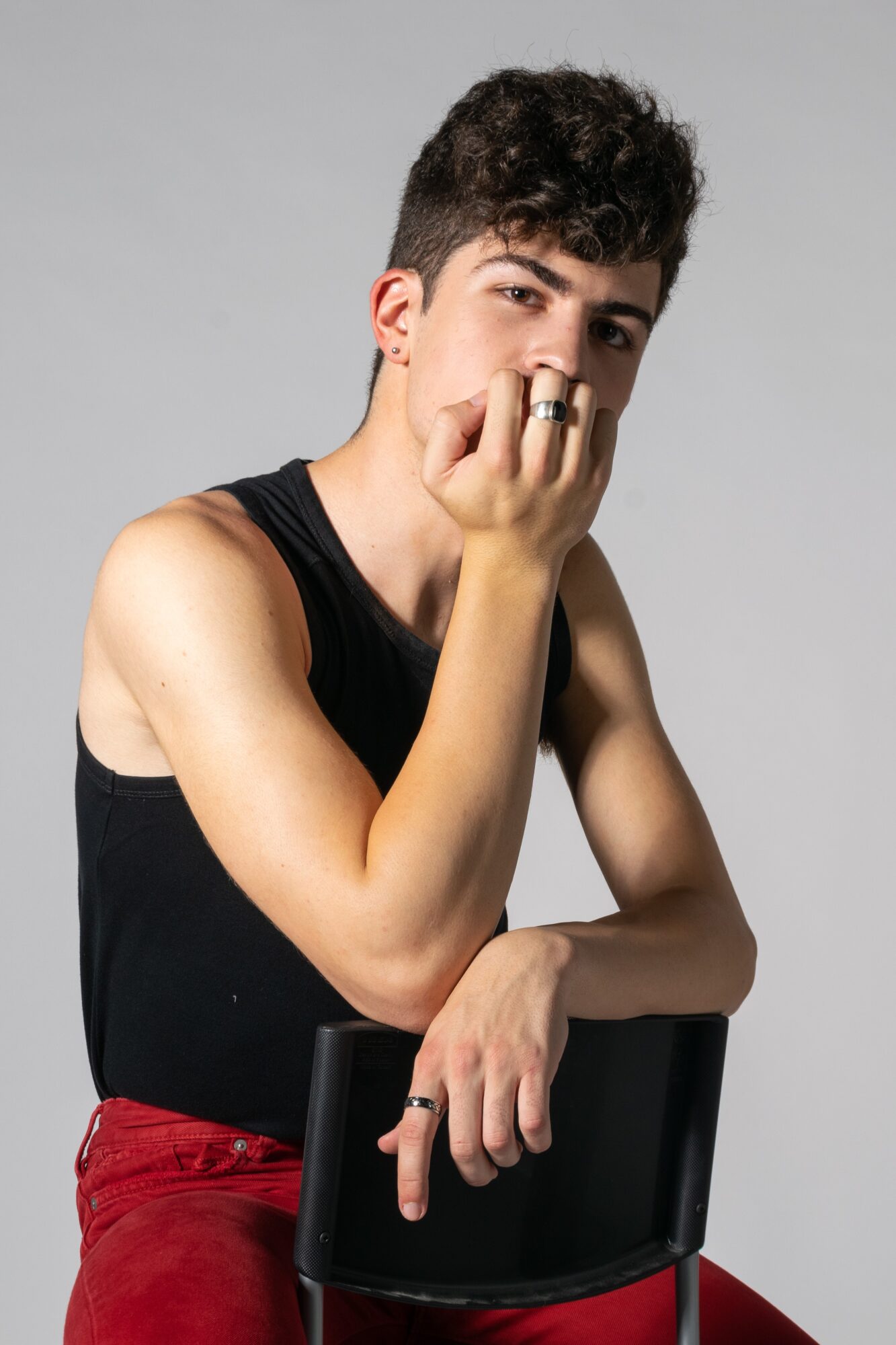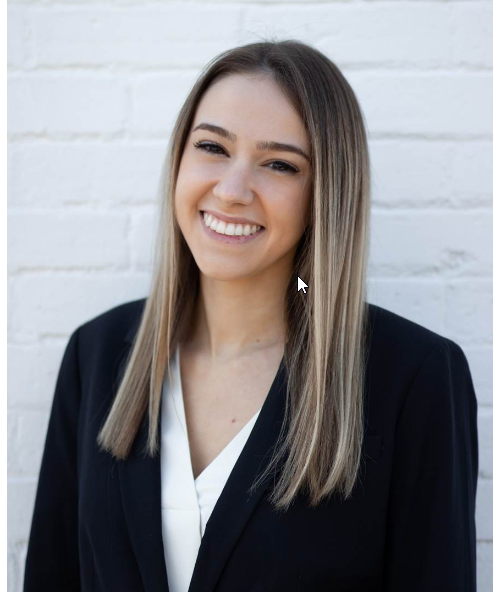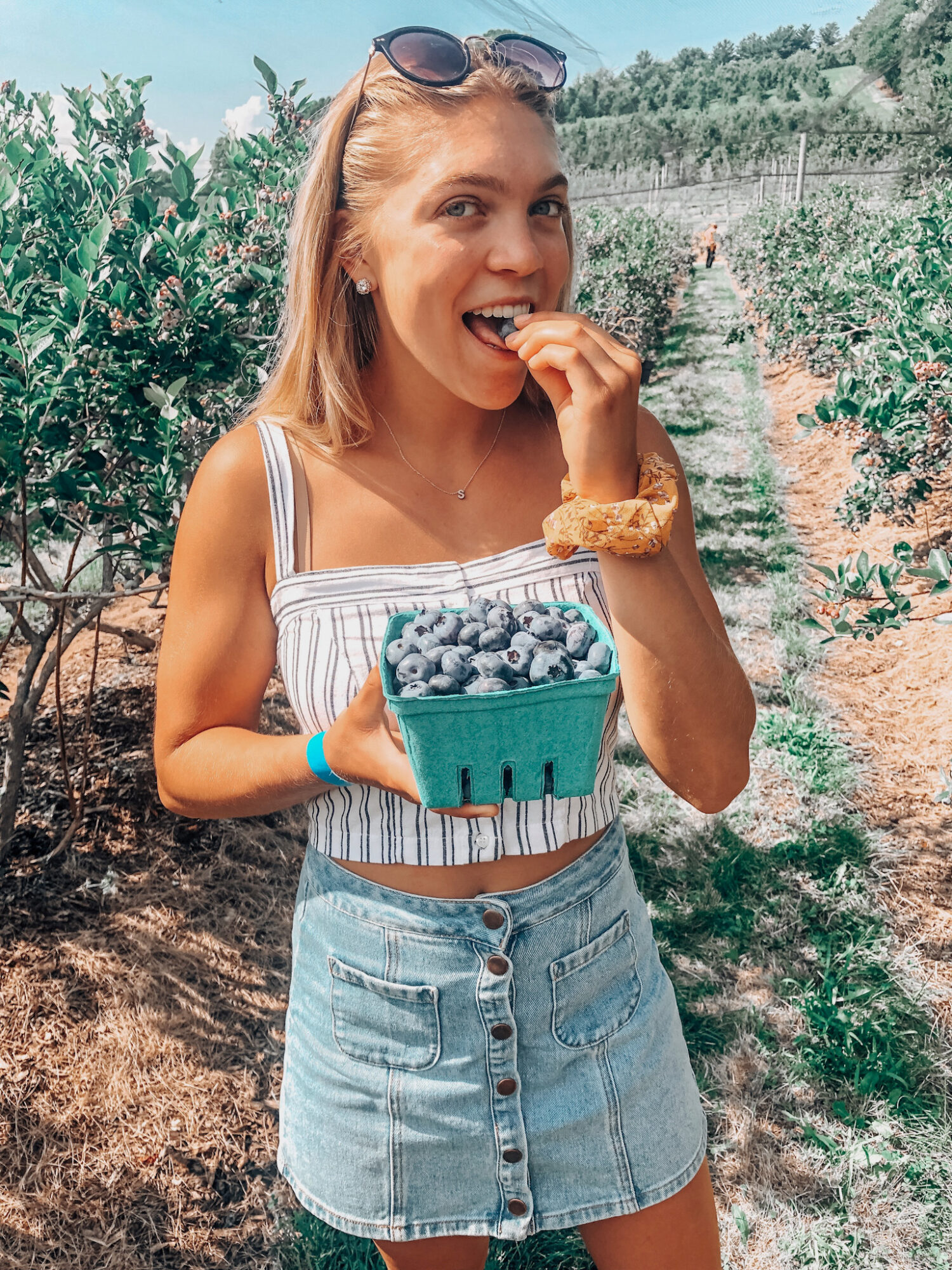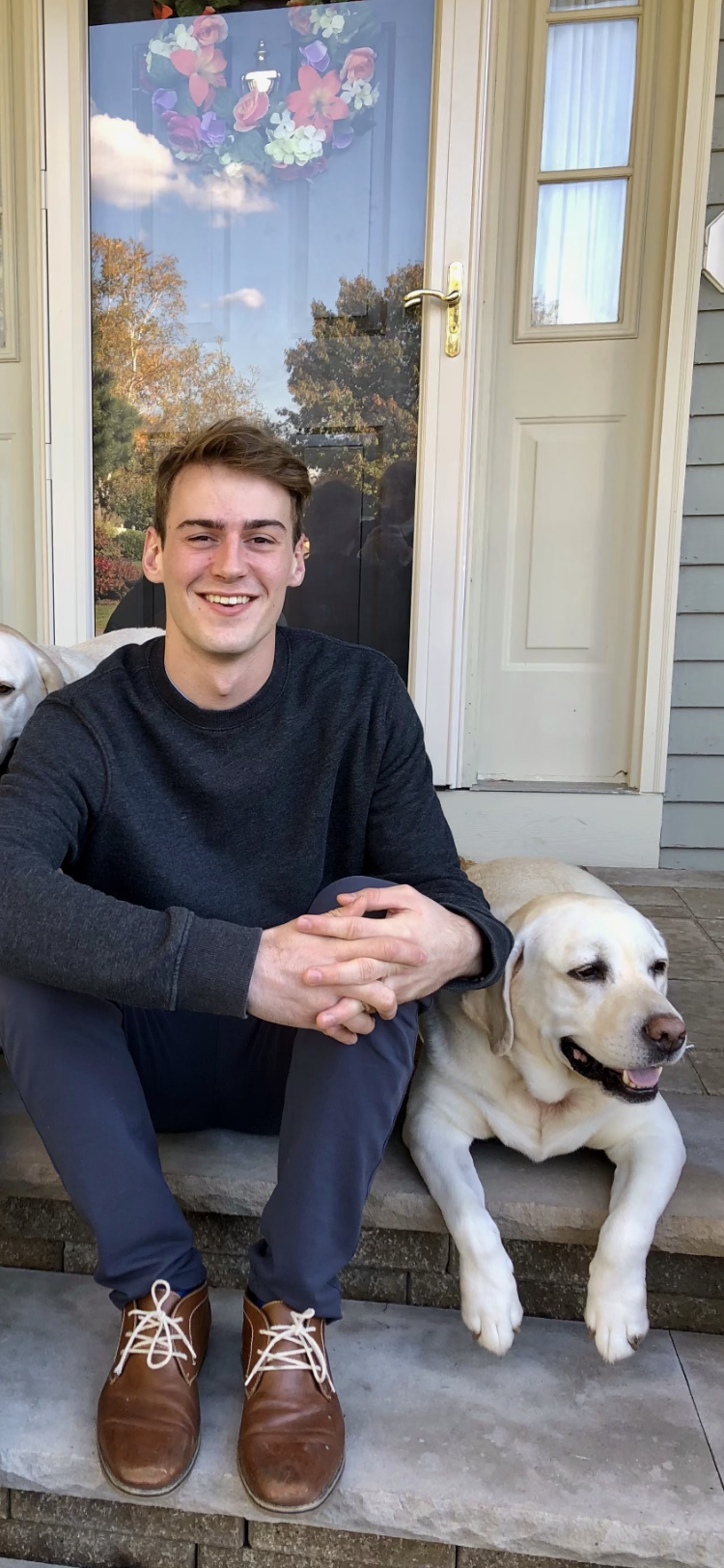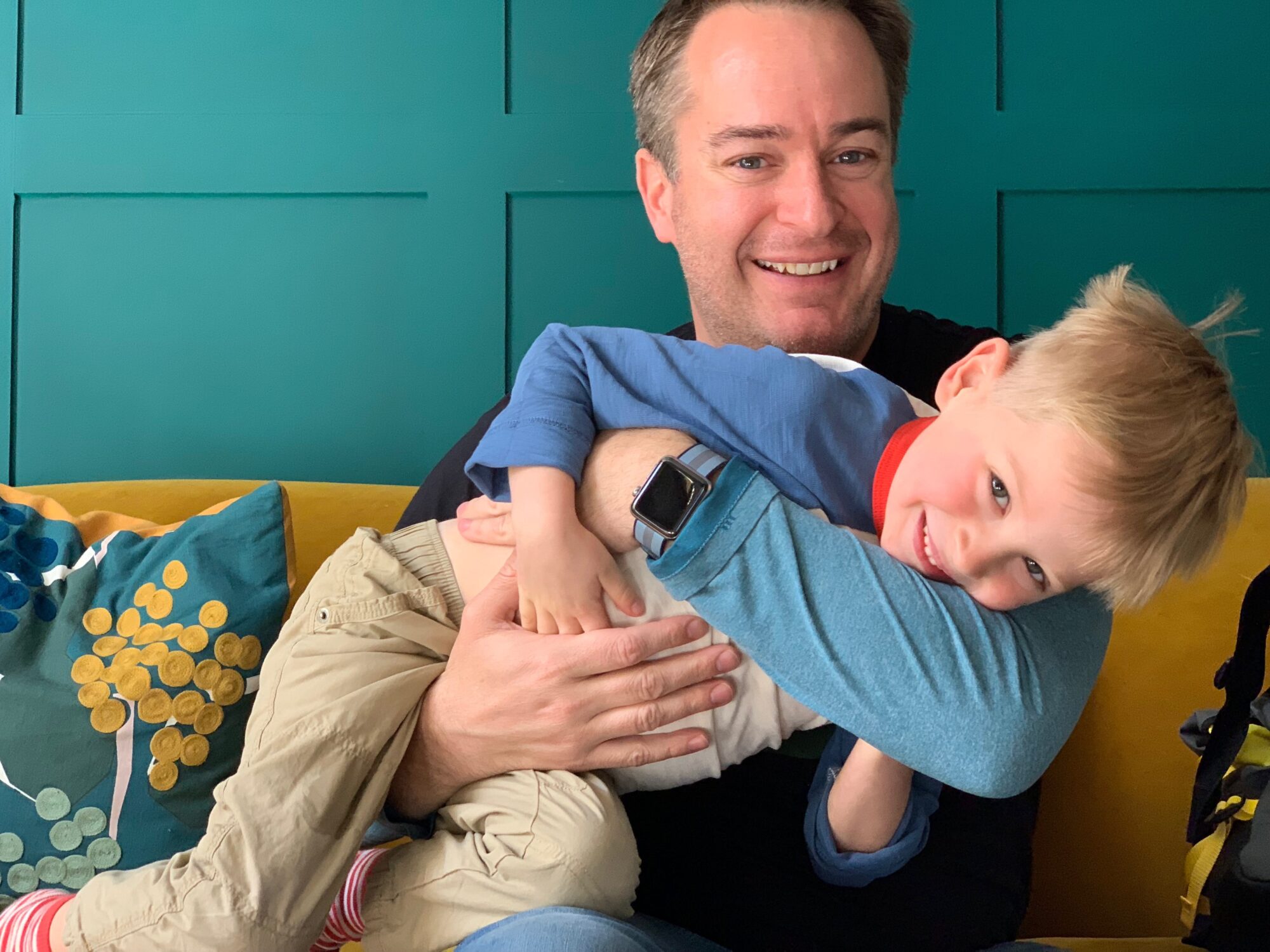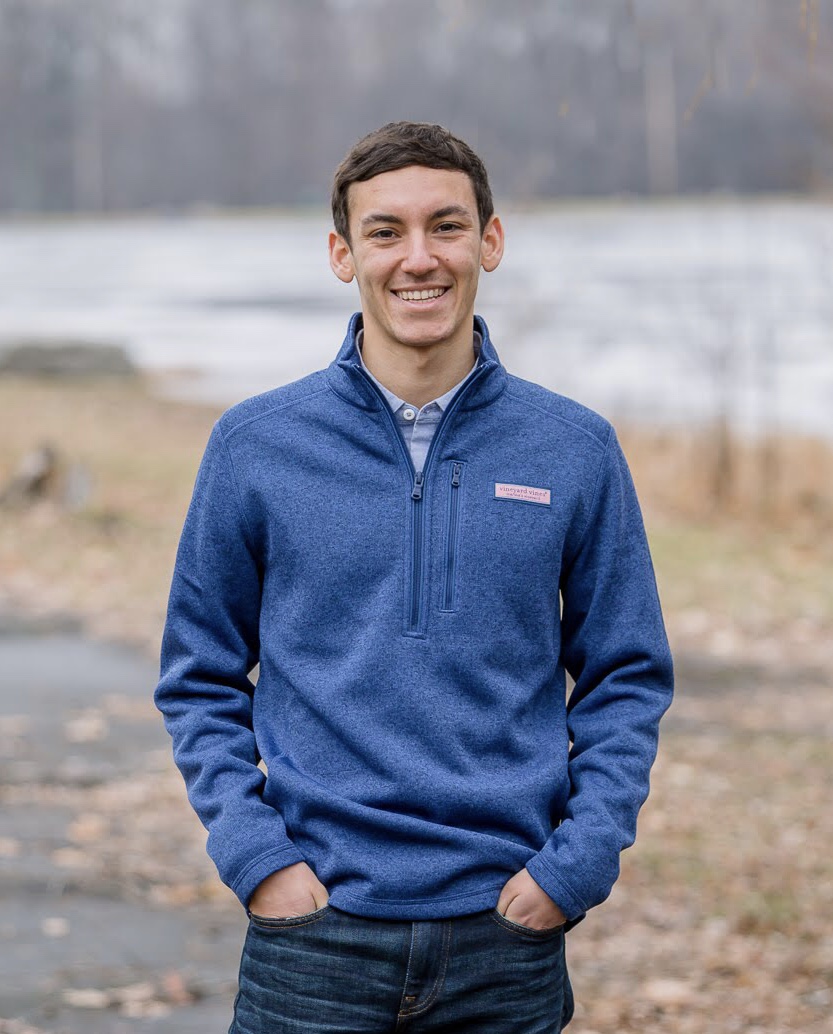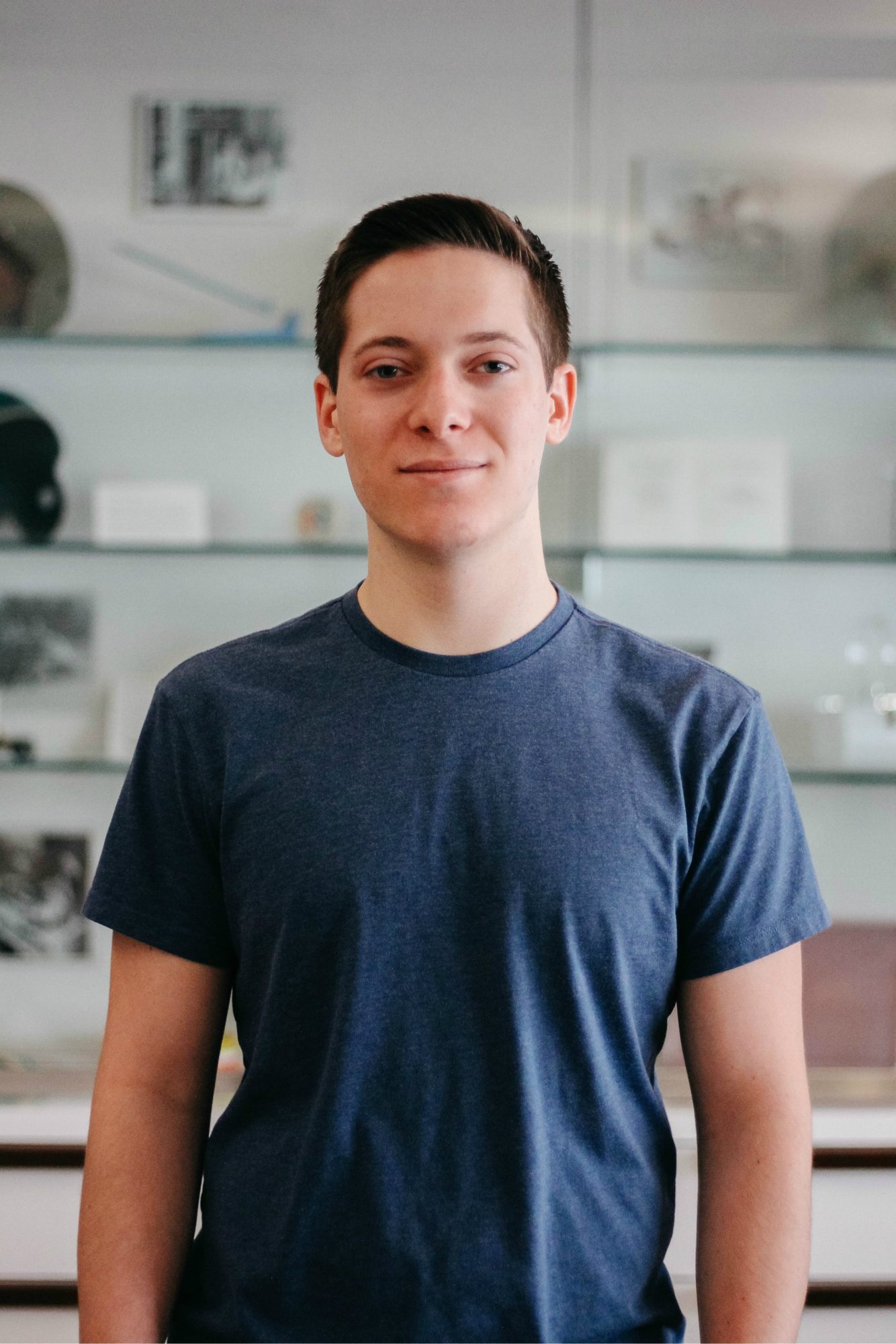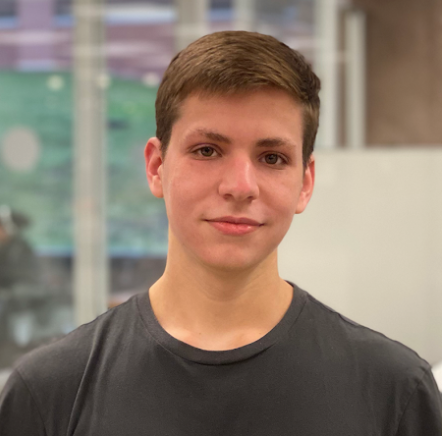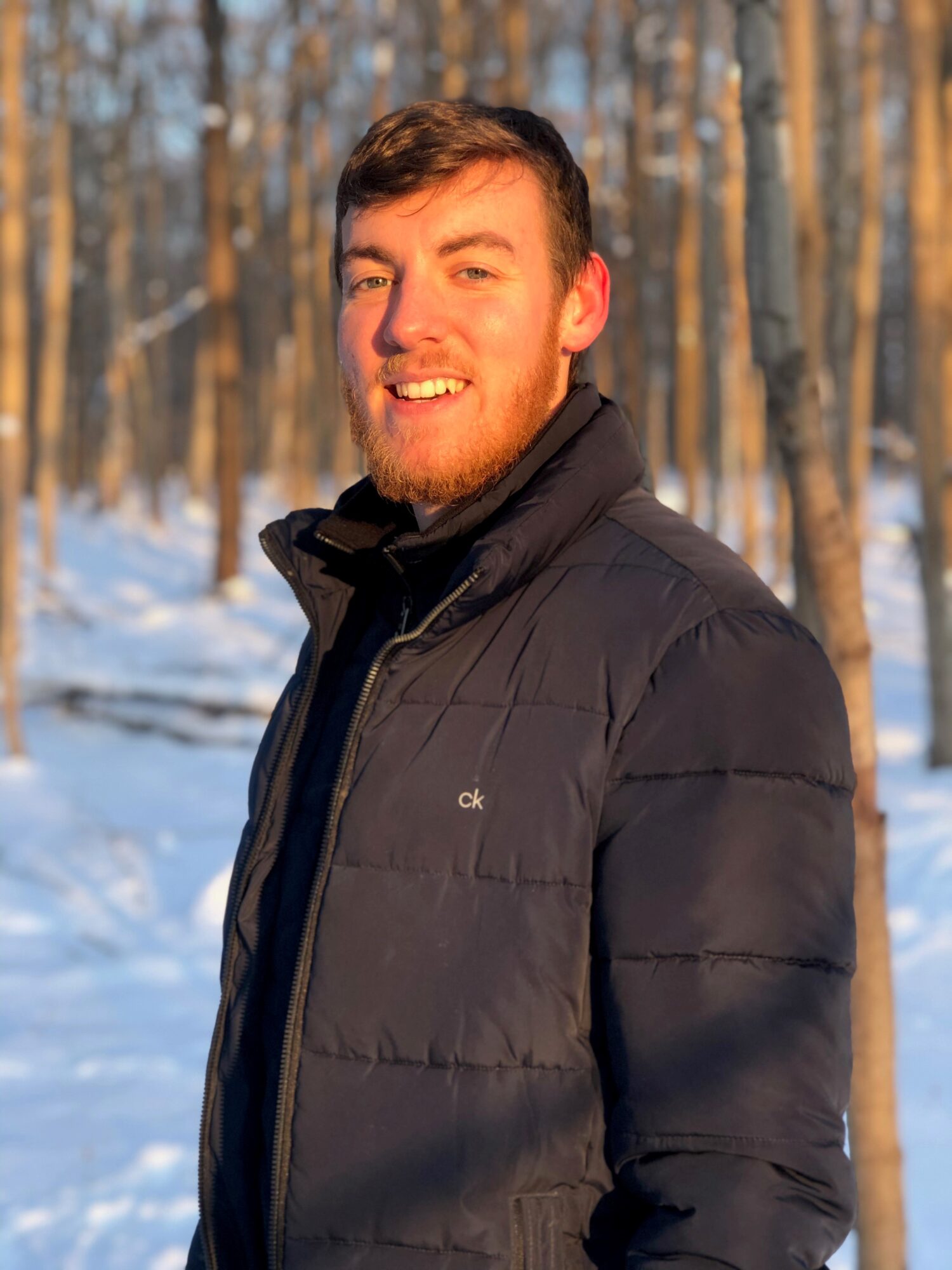
When Dr. Gary Rodziewicz came to Patrick Prioletti G ’21 with a proposition, he was immediately intrigued. Dr. Rodziewicz, a neurosurgeon who now works for a private practice specializing in medical cannabis, explained that many of his patients and friends complained that their pain management treatments were not working. He told Patrick, who has always been fascinated by neuroscience, that such treatments are related to receptors in the brain, which are unique to every individual and thus react differently to dosages.
The doctor noted that the first prescribed dosage of medical cannabis is typically only 20-30% effective but that this effectiveness jumps drastically to over 80% after a follow-up assessment and just one dosage adjustment. He hoped to develop an app that would allow patients to report feedback and receive automatic dosage adjustments to streamline the treatment process.
This is where Patrick comes in.
Patrick Prioletti, who is pursuing a Master’s degree in Applied Science at Syracuse University’s School of Information Studies, has worked for Blackstone LaunchPad and Techstars as both a Global Media Fellow and Rubin Family Innovation Mentor.
“I’m pretty good at thinking about a problem and how to scale it digitally.”
His commitment to innovation has led him to now pursue an endeavor in tandem with Dr. Rodziewicz, Dennis Taussig and William Kimball. He is serving as interim CTO and learning systems architect for Your Perfect Dose, an outlet for Patrick to apply his relentless curiosity, abstract thinking and tech abilities to a venture that will transform the way medical cannabis treatments are implemented.
“Pharmaceutical companies won’t be happy when they learn an algorithm can do what doctors can.”
However, the aim of Your Perfect Dose is not to replace doctors but to make custom dosage adjustments more accessible to patients. The app will be based on user feedback — daily or weekly — where patients can quickly rate their pain, log improvements in sleep, report side effects, and more. The goal is to make the process as simple as possible so that even a working mother can input her symptoms between making breakfast and driving her children to school.
The app will offer a suite for doctors to view their patients’ feedback so they can still offer further suggestions. Rather than waiting for months to schedule a follow-up appointment, patients can check in daily for automatic dosage shifts, freeing up doctors’ time to focus on new patients who need more detailed evaluations and automate the patients who have already found their necessary dose.
Otherwise, Your Perfect Dose can also serve as a safer way for self-medicating users — who will continue to medicate regardless of if this app exists — to determine more accurate dosages for their needs.
By capturing a wealth of nuanced data in such a simple way, the app also offers limitless potential for further research.
Currently, the app is being tested on only two users to determine if the program works, but the next step will be to roll out the beta under close monitoring by doctors to patients in Dr. Rodziewicz’s practice to collect an initial foundation of data from which the app will create suggestions. Your Perfect Dose will then continue to improve its algorithm through a machine learning structure that will process patients’ feedback based on its dosage adjustments.
In the future, Patrick and his team hope that the app can be deployed for other medical drugs or treatments.
“If this can work for cannabis, it can work for anything,” he says.
Patrick says his team seeks critique: “If we can hear that something is a bad idea, that’s good because at least then we have direction.”
Yet recently, they have been receiving mostly positive responses, and Your Perfect Dose even started getting noticed by members of the medical tech breakthrough community.
The director of the biotech accelerator at Syracuse told Patrick, “You’re going to shake a lot of cages.” The team will face a lot of initial resistance from the medical community, but that’s exactly how change works.
That said, at a recent business competition pitch, Patrick faced a question that left him taken aback: “If you’re helping people self-medicate with marijuana, aren’t you adding to the problem?”
In this moment, Patrick realized that although medical marijuana has already been proven to work — and act as a much safer alternative to opioids, which can be dangerously addicting — there are still many people that don’t agree.
“We’re living in the future,” he says. “But there’s still a lot of people out there that aren’t going to be on board with this.” This opened his eyes to the fact that they will still need to fight on the regulatory stage more so than in the user engagement sphere.
Patrick adds, “This will exist whether we build it or someone else does.”
The app is groundbreaking not only because of its algorithmic approach to treatment but also because its accessibility will save billions of dollars in medical expenses — especially for populations who may not normally be able to afford doctors. It is a platform where ordinary people can self-assess with guidance from scientific findings and service those who wouldn’t otherwise be serviced at all.
Patrick encourages other entrepreneurs to shut out opinionated voices and focus on testing their ideas.
“If you’re listening to everyone, then you’re not listening to anything.”
Fortunately, Patrick can engage in hypothesis testing for his projects and isolate himself from the expectations of others.
“You can’t put a box around me,” he states.
Patrick also speaks to the nature of innovation: “You will never hear about true innovation until one day it slaps you in the face when you wake up.”
Perhaps someday, when Your Perfect Dose is at the core of the way we do medical treatment, this slap is exactly what we’ll feel.
To learn more about Patrick, view his LinkedIn. To sign up as a test user for Your Perfect Dose, check out ypdme.com.
Story by Sasha Temerte ’23, LaunchPad Orange Ambassador; photo supplied
